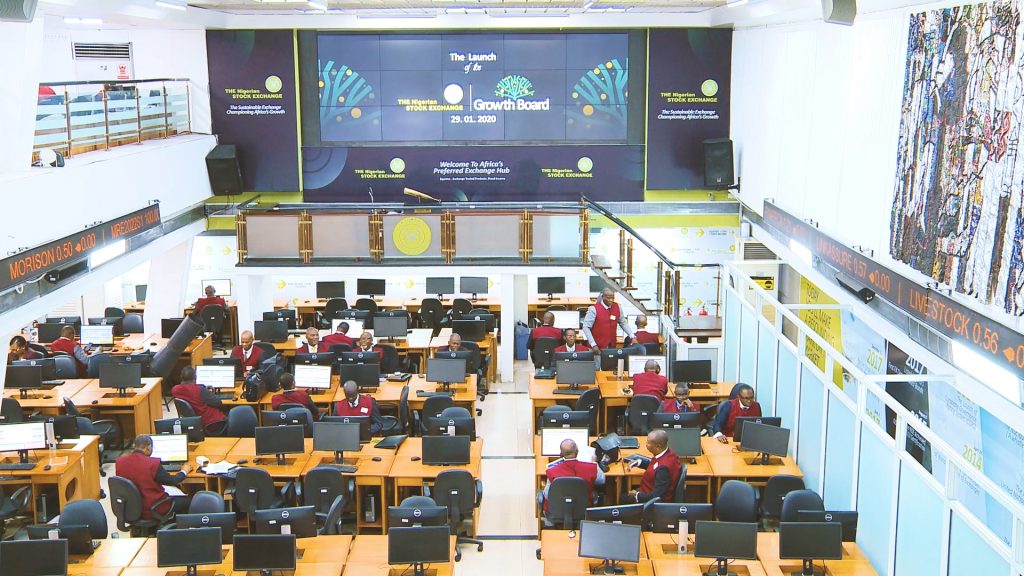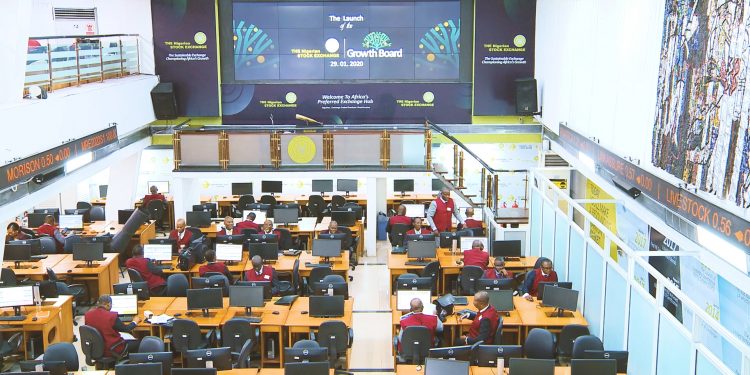The bullish momentum in the local bourse lost steam as investors took a breather to digest corporate earnings released thus far. In terms of activity levels, volume grew by 8.2% w/w while value declined 4.1% w/w. Supported by gains on the second (+0.8%) and last trading (+0.9%) days, the All-Share Index crawled above the 31,000 points psychological mark, closing at 31,016.17 points. Notably, investors’ interest in DANGCEM (+9.1%), DANGSUGAR (+19.6%), and GUARANTY (+3.1%) drove the benchmark index 1.6% higher, its seventh-consecutive weekly gain.

The MTD return stood at 1.6% while the YTD return for index grew to 15.6%. Performance across sectors was broadly positive. Save for the Oil and Gas (-0.8%) which declined, the Industrial (+2.9%), Banking (+2.2%), Insurance (+1.3%) and Consumer Goods (+0.6%) indices closed in the green.
As the Q3 earnings season winds down, Experts sector say investors to shift their attention to yet to be published results from the big banks (FUGAZ) in the week ahead. In the short term, we still see scope for expansion in valuation multiples as hunt for alpha-yielding opportunities in the face of increasingly negative real returns in the fixed income market remain positive for stocks. However, we advise investors to take positions in only fundamentally justified stocks as the weak macro environment remains a significant headwind for corporate earnings.
Nigeria’s Economy
Meanwhile, the Minister of Finance disclosed that Nigeria’s public debt profile may hit NGN38.68 trillion by December 2021 (2020E: NGN32.51 trillion). This translates to expected borrowing of NGN6.71 trillion, which is 18.7% greater than the deficit (NGN5.20 trillion) in the proposed 2021 budget. We suspect this might be due to the FGN’s expectation of a substantially lower revenue compared to the projected revenue (NGN7.88 trillion) due to the soft macroeconomic conditions, particularly in the non-oil sector.
Given the continued rise in public borrowing amid underperformance in revenue targets, debt/service ratio is likely to deteriorate raising concerns on debt sustainability. In 8M-20, we note that 84.9% of total revenue (NGN2.52 trillion) was used in servicing debts, suggesting the FGN must have relied on borrowing to meet recurrent expenditure. As such, we think there is an urgent need for the government to implement fiscal consolidation measures while alleviating structural constraints in the business environment to enhance economic activities.
According to the National Bureau of Statistics (NBS), the total amount of VAT generated in Q3-20 increased by 29.8% q/q to NGN424.71 billion, bringing 9M-20 VAT to NGN1.08 trillion (9M-19: NGN876.10 billion). While the 50% increase in the VAT rate which took effect in February 2020 led to the 22.9% y/y growth in VAT collected in 9M-20, we believe the gradual pickup in economic activities in Q3-20 was responsible for the 29.8% q/q growth in the review period.
On a sectoral basis, we note that other manufacturing generated NGN47.07 billion – the highest amount, followed by the Professional Services (NGN44.01 billion) and Commercial and Trading (NGN21.18 billion). Taking into cognisance the impact of the #EndSARs protests and the ensuing social unrest which affected commercial activities, we still expect VAT to show improvement in Q4-20, underpinned by gains from the hike in the VAT rate and increased spending related to the festive season.
Final October estimates by IHS Market for the Eurozone showed continued improvement in the manufacturing sector amid deteriorating activities in the service sector. Specifically, the manufacturing PMI (+1.1 point m/m to 54.8 points) rose to the highest level in 27 months on account of a surge in new orders, reflective of continued gains from the relaxation of lockdown measures. Elsewhere, the services business activity index (-1.1 points m/m to 46.9 points) swung to a 5-month low as the second wave of the COVID-19 pandemic hit consumer-facing service providers. Overall, the composite PMI stood at 50.0 points (vs. September: 50.4 points), due to the impact of stuttering activity in the service sector.
The October composite PMI is the weakest since the expansion began four months ago, suggesting the recent resurgence in Covid-19 cases is beginning to hurt activities. Given the rekindling of lockdown measures in the more significant parts of the region, we expect activities in the service sector to slow down, prolonging the recovery process of the region.

The U.S. Federal Open Market Committee (FOMC), in its latest Monetary Policy Meeting, elected to maintain the key interest rate near zero (0% – 0.25%) and stated that it would maintain that level till inflation rate rises to and consistently exceeds 2%, and the economy gravitates towards full employment level. Apart from stressing the need for more fiscal stimulus, we note that the tone of the meeting was almost unchanged when compared with the September meeting, as the committee refrained from providing new guidance, which in our view, is aimed at assessing the outcome of the election.
With the election results tilting towards a divided legislature even as economic activity remains well below the pre-pandemic levels, we think hopes for a massive fiscal stimulus remains limited. This could put pressure on the FOMC to expand its current holdings of Treasury securities and agency mortgage-backed securities to support the economy.
Global markets
Despite the threat of a second wave of lockdowns, global stocks rallied as investors’ appetite for risky assets improved on hopes that Democrat Joe Biden would emerge as U.S. President and that a divided legislature will mean no major tax hikes or regulatory changes that would derail equities. In the US, the DJIA (+7.1%) and S&P (+7.4%) were on track for their best week since April, as bargain hunting in technology and health care stocks drove the benchmark indices higher.
In Europe, the STOXX Europe (+7.0%) and FTSE 100 (+5.8%) were on track to close the week in the green following a four-day rally induced by the post-election rally in the U.S and fresh stimulus from the BOE. Asian (Nikkei 225: +5.9; SSE: +2.7%) markets ended the week positive as hopes of a Biden presidency, which is touted to mean a more predictable foreign and trade policy, buoyed investors’ sentiment. Emerging market (MSCI EM: +3.4%) stocks also benefitted from the spillover effect of the rally on Wall Street while Frontier market (MSCI FM: +1.0%) stocks were on track to close higher following gains in Vietnam (+1.3%).
Source: Cordros Capital















